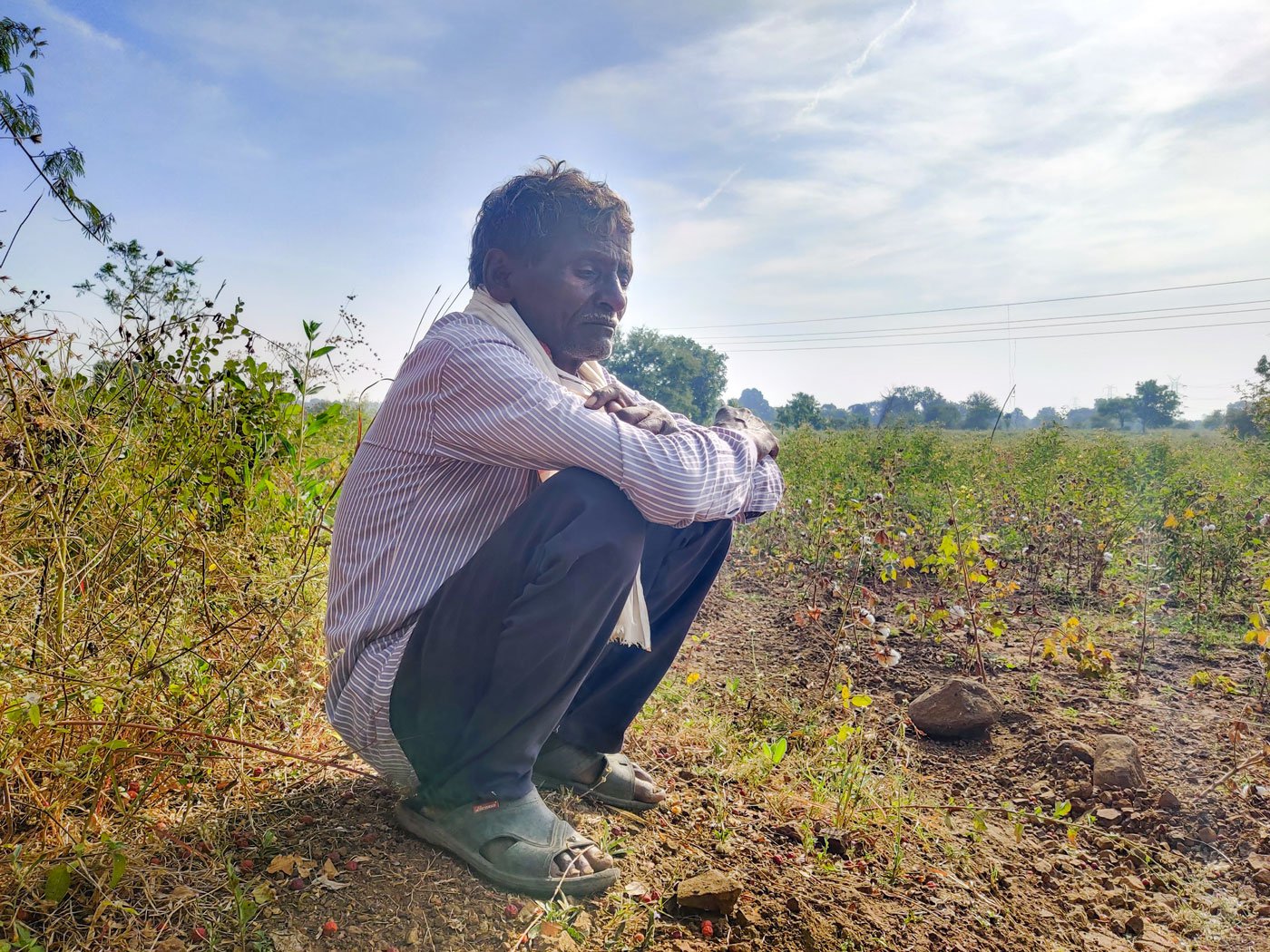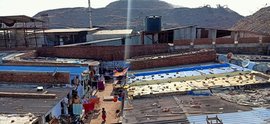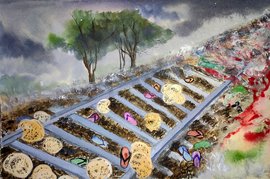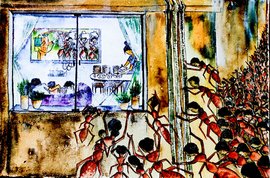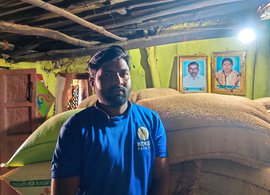He stood at the edge of the farm, simply staring at his silver-white crop, now submerged in knee-high water after a heavy rainfall. Vijay Marottar’s cotton field in Vidarbha had been devastated. “I had invested nearly Rs. 1.25 lakh on the crop. I lost most of it,” says the 25-year-old. It was September 2022, Vijay’s first cropping season. And this time, he had nobody to share his problems with.
His father, Ghanshyam Marottar had died by suicide five months ago, and he had lost his mother to a sudden heart attack a little more than two years ago. Seasons of crop loss with erratic weather and mounting debts caused his parents severe anxiety and stress, as with many other farmers in the Vidarbha region. And there has been little help for them.
But Vijay knew he could not afford to break down like his father. He busied himself to draining the water from his field for the next two months. For two hours every day, with nothing but a bucket in hand, he ploughed barefoot through his sloughy farm, his track pants folded up to his knees, his t-shirt soaked in sweat. He broke his back, draining the water out manually. “My farmland is located on a slope,” Vijay explains. “I am, therefore, more affected by excess rains. Water from surrounding farms slides into mine and is difficult to get rid of.” The experience has scared him.
Even when adverse climatic conditions – excessive rainfall, prolonged dry spells, and hailstorms cause immense agrarian distress, leading to mental health issues, the state does very little to help farmers deal with this crisis. (Read
In Vidarbha: agrarian distress, playing on the mind
). No information about access to or provision of services for people with mental stress and disorder, available under the
Mental Healthcare Act, 2017
, ever reached Vijay or his father, Ghanshyam, while he was alive and struggling. Nor have they come across any outreach camps organised under the District Mental Health Programme of 1996.
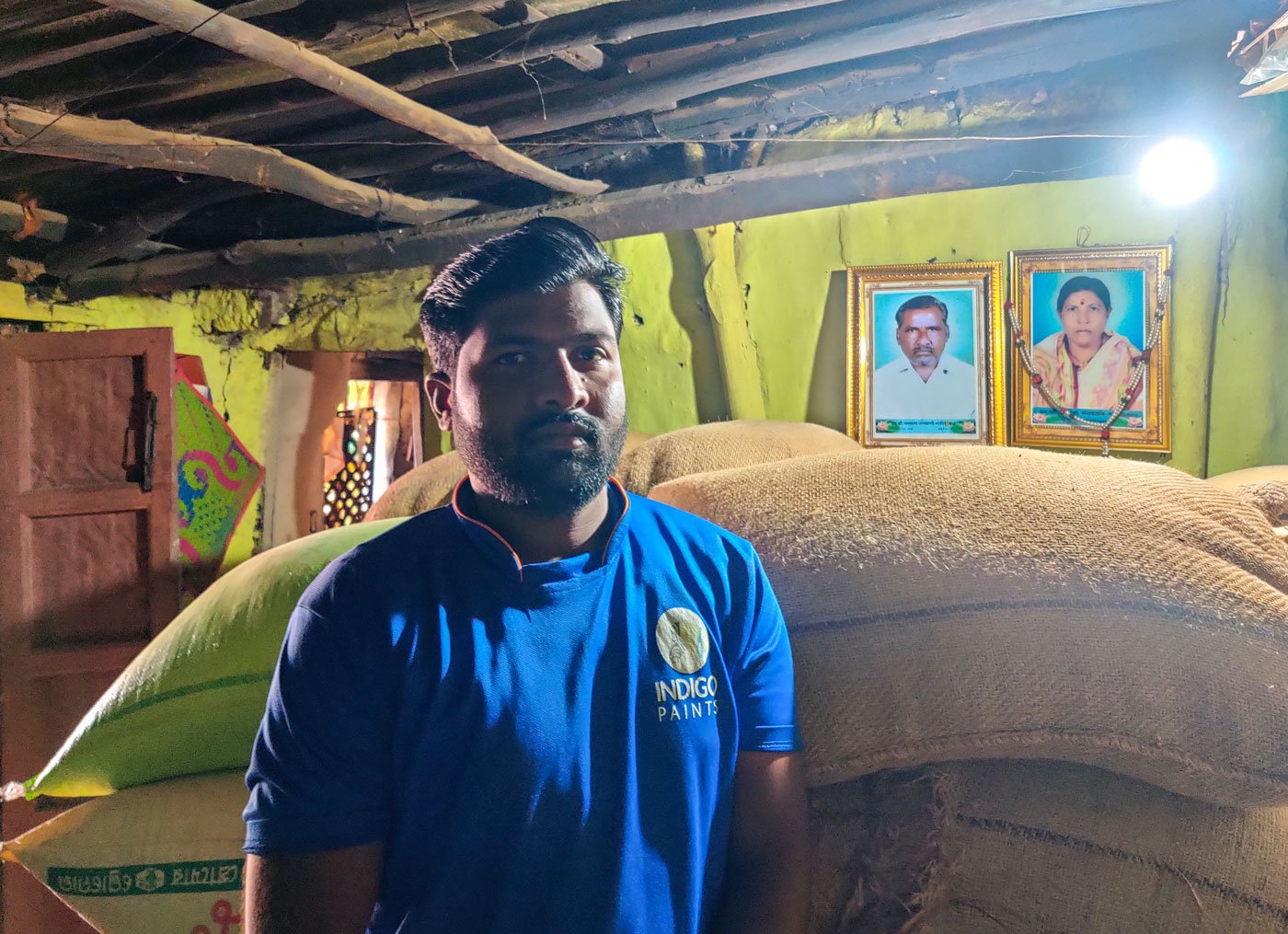
Vijay Marottar in his home in Akpuri. His cotton field in Vidarbha had been devastated by heavy rains in September 2022
Prashant Chakkarwar, a well-known psychiatrist in the region who was the visionary behind the project, says, “We provided the state government with a multipronged crisis intervention strategy. We focused on coping mechanisms and trained emotional education workers who identified severe cases and reported them to the district committee. We also roped in ASHA workers because they are in touch with the community. Our approach included treatment, medicine, as well as counselling.”
The plan showed positive results in Yavatmal during 2016, where there was a significant drop in the number of suicide cases in comparison with other distressed areas. The
state records
showed that in the first three months of 2016, suicide numbers in the district came down to 48 from 96 in the previous year for the same period. In other affected districts, farm suicides had either increased or stayed the same. The success of Yavatmal led the state to adopt the Prerana project across 13 other affected districts in the same year.
But the project and its success did not last and began fizzling out very soon.
“The project started well because the bureaucracy supported the civil society,” says Chakkarwar, “It was a public-private partnership. Not long after the project took off across the state, administrative and coordination issues between teams began to rear their heads. Eventually, civil society organisations pulled out, and the Prerana project became a completely government-controlled program, lacking efficient implementation.”
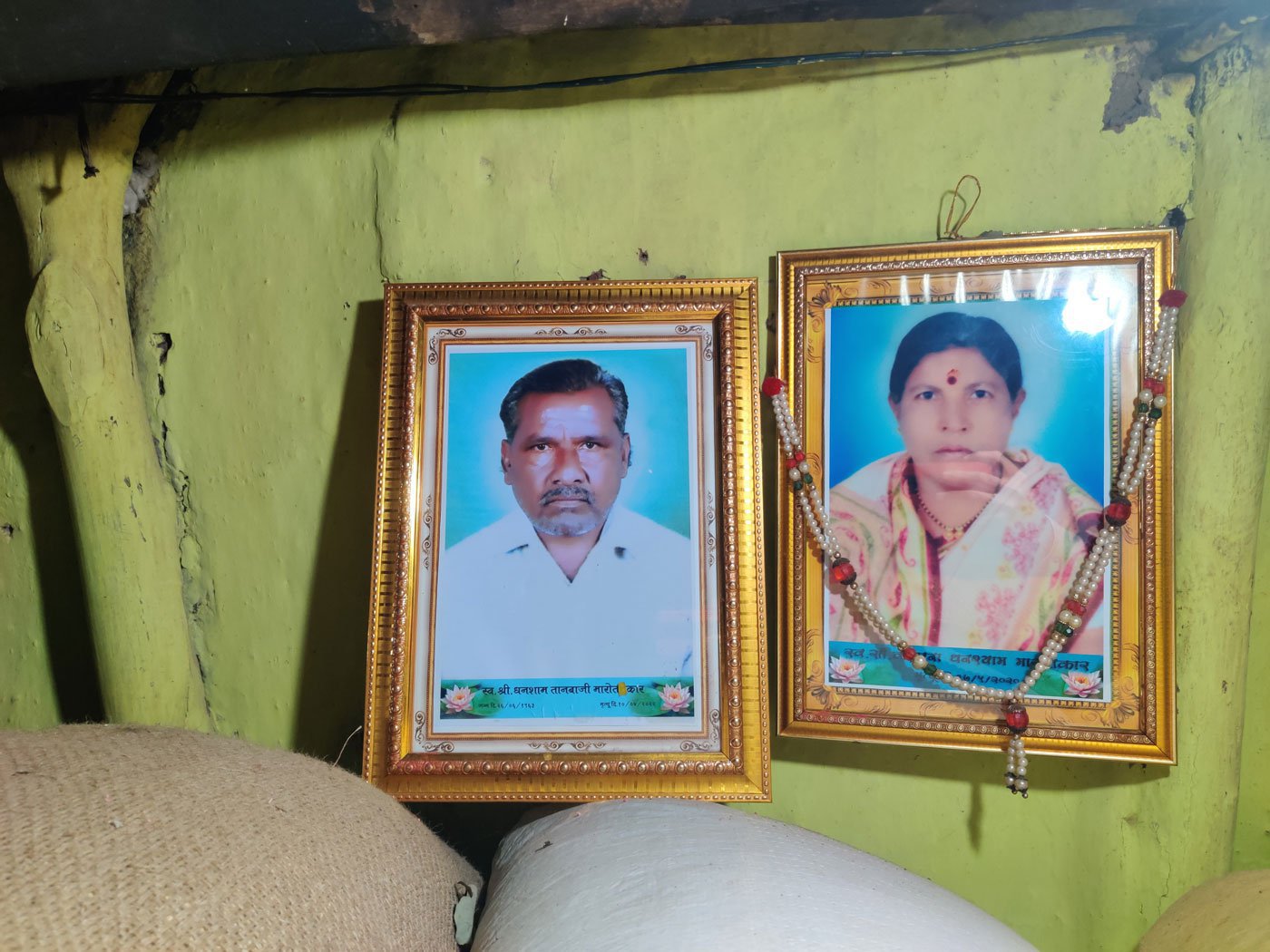
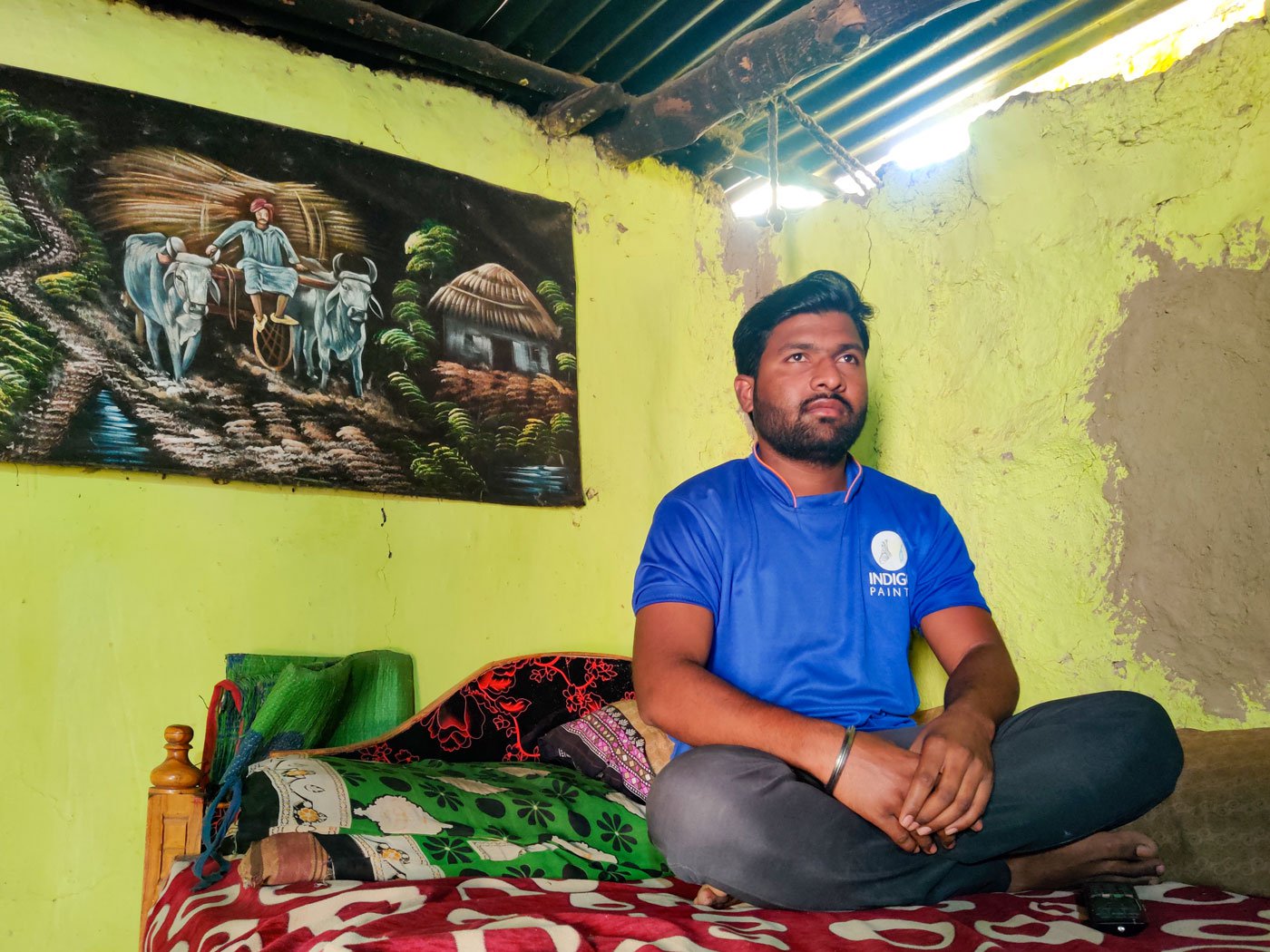
Left: Photos of Vijay's deceased parents Ghanshyam and Kalpana. Both of whom died because of severe anxiety and stress caused by erratic weather, crop losses, and mounting debts . Right: Vijay knew he could not afford to break down like his father
By the time Ghanshyam Marottar died of suicide in 2022, the Prerana project had become a failing government project – with an increasing number of vacant positions for psychiatric professionals and dwindling local volunteers and trained ASHA workers. Again, Yavatmal was staring intense agrarian distress in the face: symbolised by 355 farmer suicides in that year.
The state’s inability to address the mental health crisis meant that more than one non-profit organisation had stepped into the region. Tata Trust ran a pilot project called Vidarbha Psychological Support and Care Programme in 64 villages of Yavatmal and Ghatanji taluka from March 2016 to June 2019. “Our initiative increased the help-seeking mentality among people,” says Praful Kapse, who headed the project. “More farmers started coming forward with their problems whereas, in earlier times, they used to go to a
tantrik
practitioner to cure mental health disorders.”
In the 2018 Kharif season, a psychologist working with Tata Trust reached out to Shankar Pantangwar. This 64-year-old farmer, who owned three acres of land in Hatgaon village in Ghatanji taluka, had slipped into a depression with suicidal thoughts. “I had not seen my farmland for over a month,” he recalls. “I would spend days sleeping in my hut. I have been a farmer all my life, and I don’t think I have ever gone so long without seeing my land. When we pour our heart and soul into our farm and get nothing in return, how do you not get depressed?”
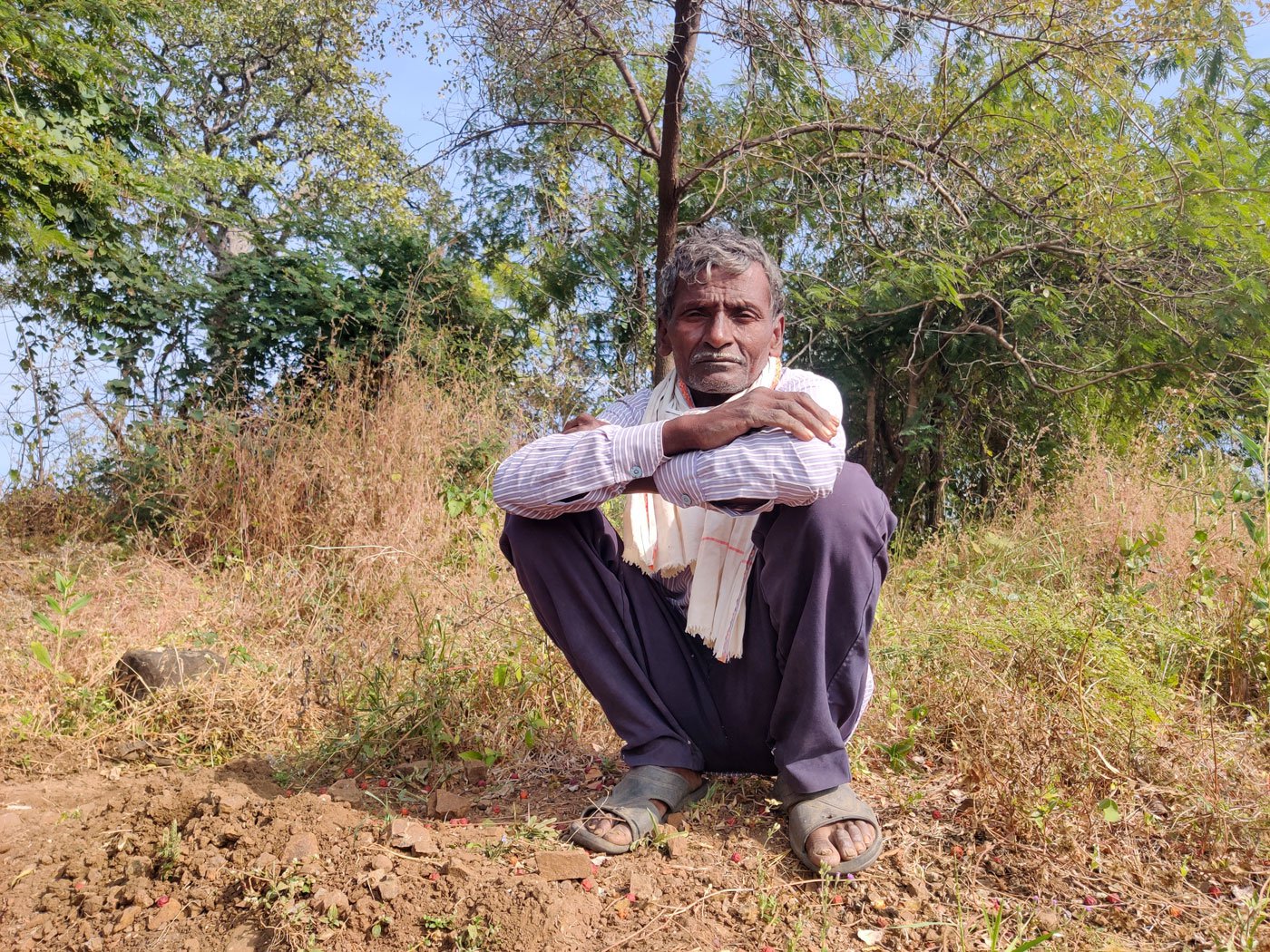
Shankar Pantangwar on his farmland in Hatgaon, where he cultivates cotton and tur on his three acre. He faced severe losses for two or three consecutive seasons
Shankar’s wife, Anushaya, is 60 years old and works as a daily wage labourer since the weather has made farming increasingly precarious. They have two children. The older daughter Renuka, 22, is married, and their 20-year-old son has an intellectual disability. Shankar decided to fight his inner demons for their sake as the Kharif season of 2018 approached.
It was around that time that the psychologist approached him. “They used to come and sit with me for three-four hours,” he recalls. “I just shared all the troubles I had. I came out of my bad time by talking to them.” The regular meetings over the next few months seemed to offer him much-needed relief. “I could talk to them freely. It was refreshing to talk to someone about my feelings without being guarded,” he explains. “If I share with my family and friends, they will get stressed. Why should I bother them like that?”
Shankar gradually slid into a routine of expecting the interactions every couple of months when they suddenly stopped one day - without a warning or word of explanation. “Administrative reasons,” is all Kapse, the head of the project, could say.
At their last meeting, neither the psychologists nor Shankar knew they would never see each other again. Shankar misses those interactions very much. He has been under stress ever since and has borrowed Rs. 50,000 from a private moneylender at an exorbitant interest rate of Rs. 5 per month, or 60 per cent per annum. He wants to talk to someone. But the only recourse left to him now is to dial 104, a toll-free government helpline for mental health issues introduced in 2014. Another measure that adds to the existing network of non-functioning services.
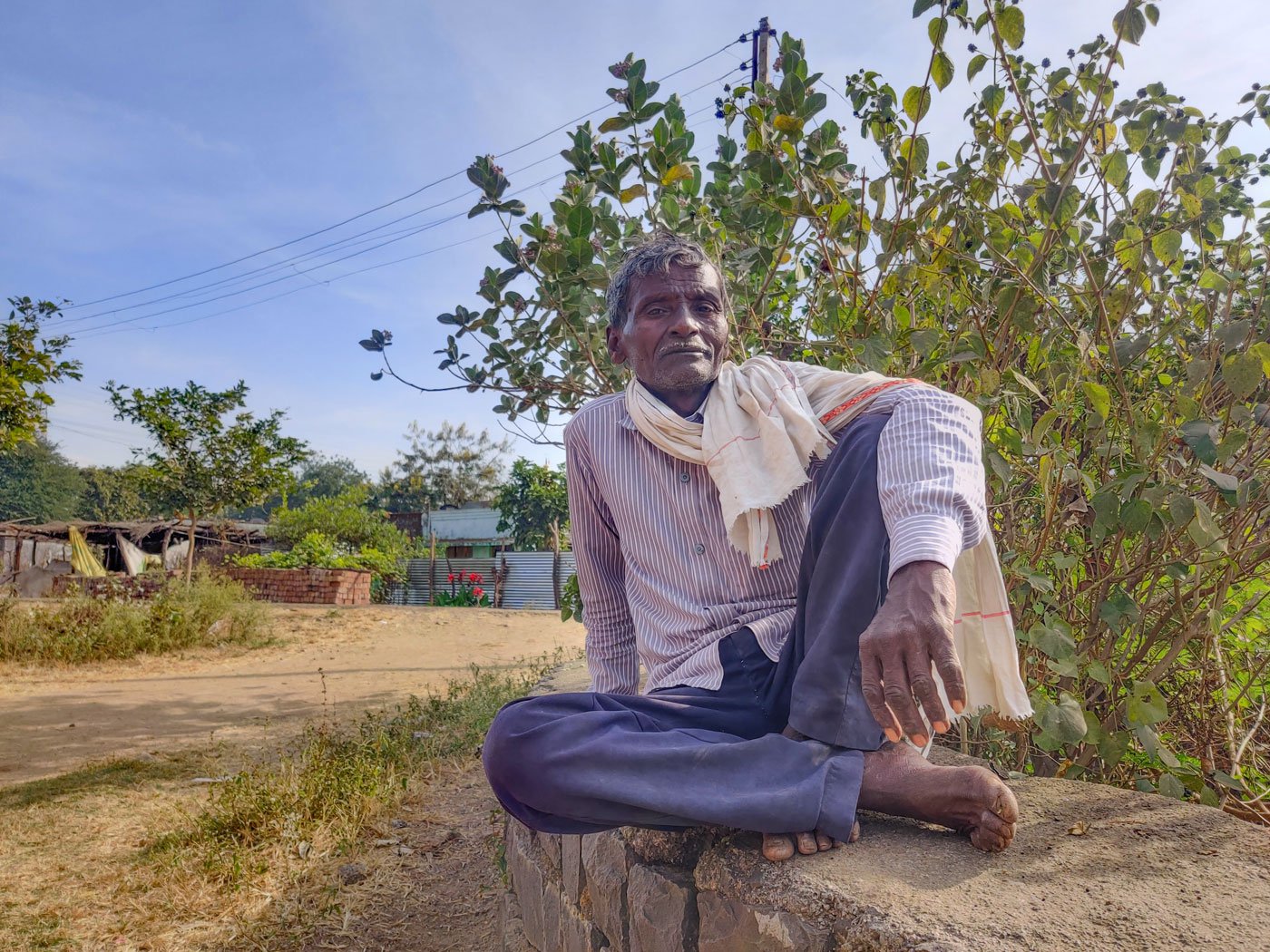
'When we pour our heart and soul into our farm and get nothing in return, how do you not get depressed?' asks Shankar. He received help when a psychologist working with TATA trust reached out to him, but it did not last long
In September 2022, when Divya Marathi , a regional daily newspaper, called up 104 posing as a distressed farmer with suicidal thoughts, the response from the helpline said that the counsellor was busy with another patient. The caller was requested to note her name, district and taluka and call again in half an hour. “There are times when the help-seeker might feel calm after being heard,” comments Kapse. “But if the help-seeker has called in acute distress where he is feeling suicidal, it is important for the counsellor to convince the person to call 108 ambulance service. The counsellors managing the helpline should be trained to address such cases,” he says.
According to the state government data, the helpline had received its highest number of calls, 13,437, from all over Maharashtra from 2015-16. The average number of calls stood at around 9,200 a year for the next four years. However, when Covid-19 broke out in 2020-21, and mental health crises peaked, the number of calls saw a dramatic decline, 3,575 calls a year – a surprising 61 per cent drop. The following year, it further dwindled to 1,963 – a staggering 78 per cent drop from the average of the previous four years.
On the other hand, the distress in rural areas was at an all-time high, and so were the farmer suicide numbers across Maharashtra. According to Maharashtra government data, 1,023 farmers took their own lives between July 2022 and January 2023. A much worse figure than the 1,660 farmers who killed themselves in the two and a half years preceding July 2022.
On 30 October 2022, the union government announced a new helpline – 14416 – to replace 104 slowly. It is too early to judge the impact of the new helpline. The distress, however, persists.
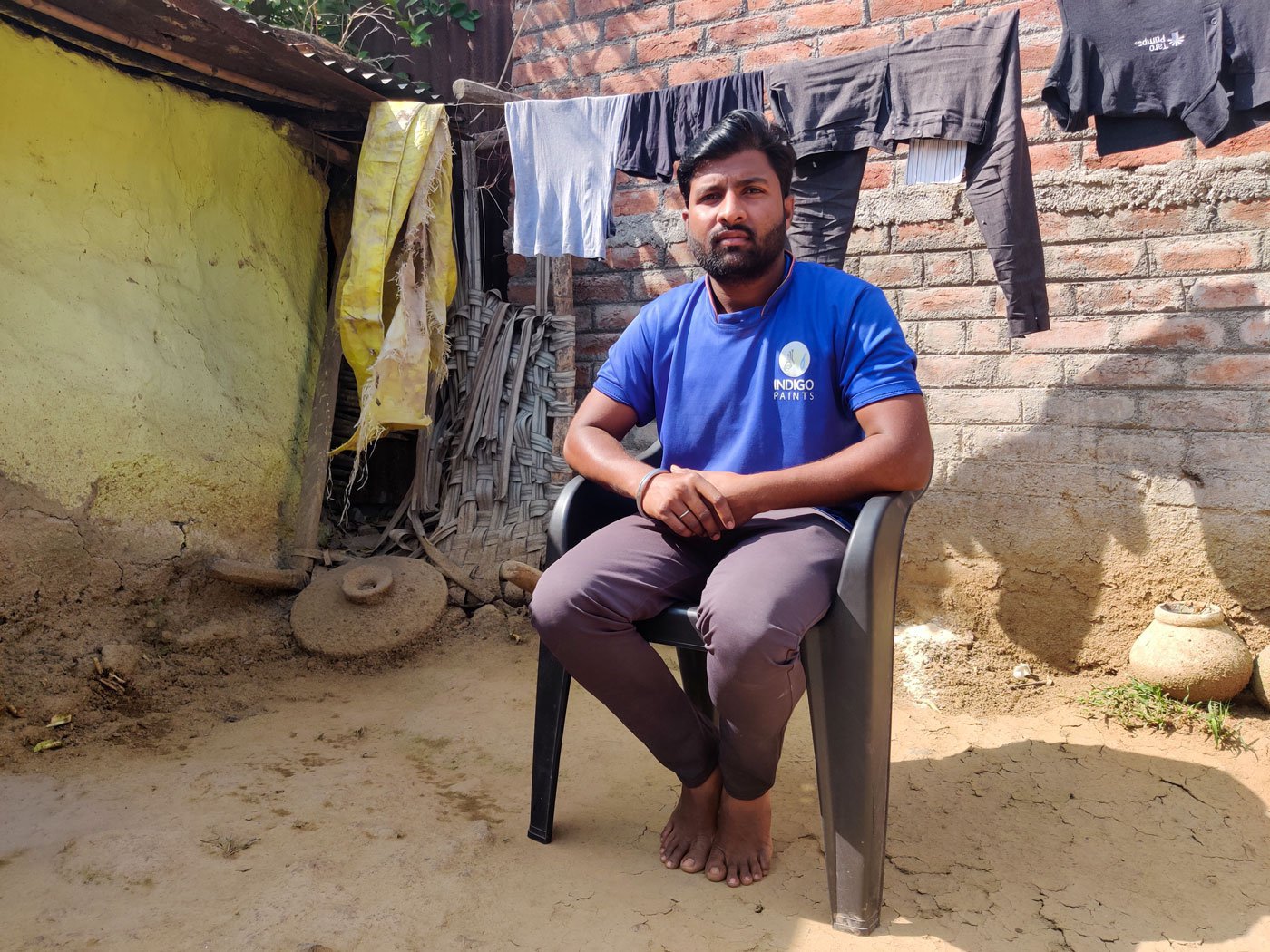
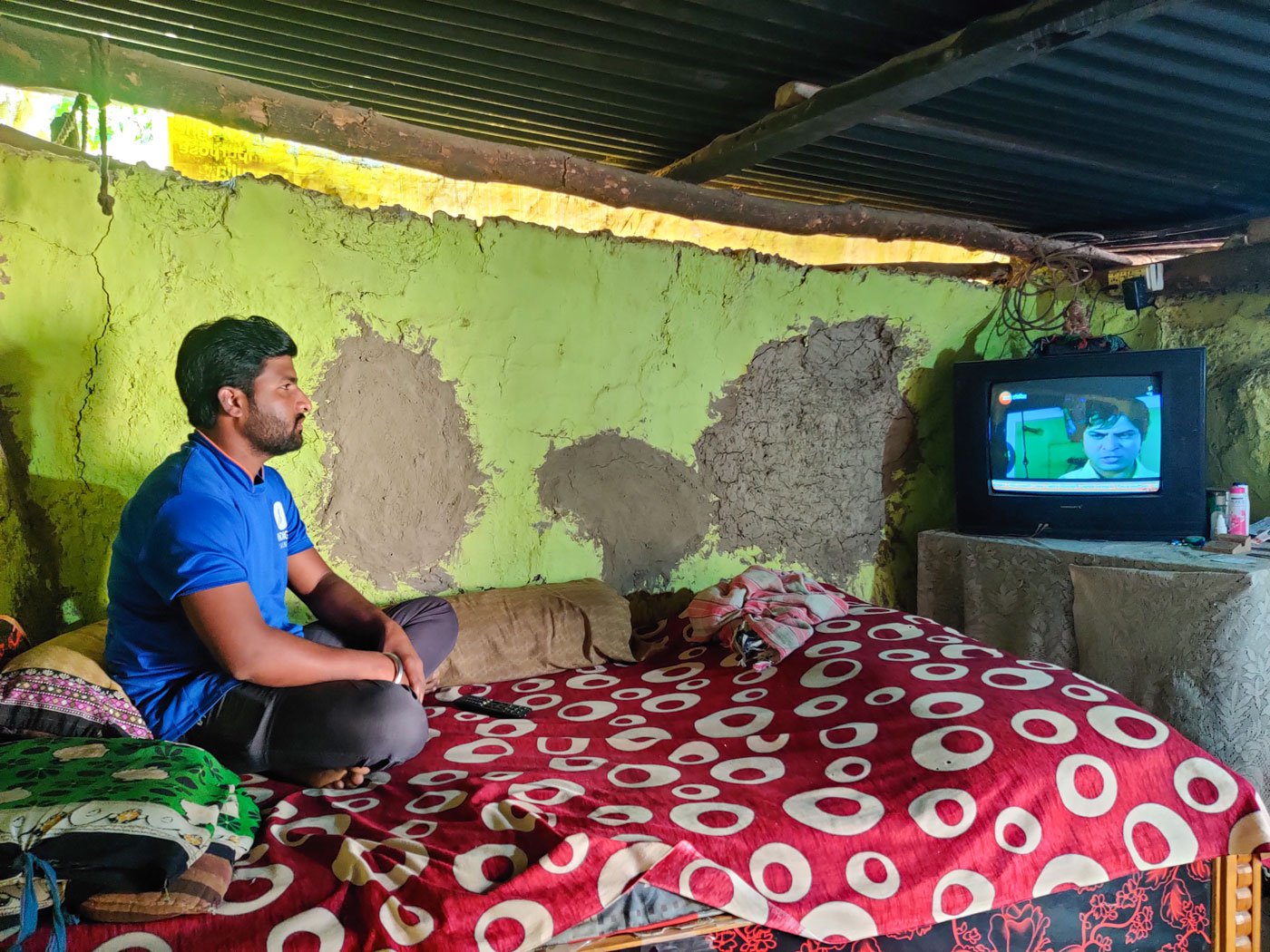
Farming is full of losses and stress, especially difficult without a mental health care network to support them. When Vijay is not studying or working, he spends his time reading, watching television, or cooking.
The excessive rainfall of September 2022 has wiped out Shankar’s harvest. He still has to repay his debt, now a lakh of rupees. He plans to start working as a labourer and add to his wife’s income in the hope that together they will be able to raise capital for the next Kharif season in 2023.
Back in Akpuri, Vijay has already charted out an exit plan. He has decided to phase out cotton and replace it with more flexible crops like soybean and
chana
[chickpeas], which are better able to withstand minor weather changes. He has started working at a hardware store, earning Rs. 10,000 a month while studying for an MA degree. When Vijay is not studying or working, he spends his time reading, watching television, or cooking.
Wiser than his 25 years and forced into managing the farmland and household all by himself, Vijay refuses to let his mind wander because he is afraid it might bring up thoughts he is not ready to confront.
“I accepted the job not just for the money,” he says. “It keeps my mind occupied. I want to study hard and get a stable job so I can give up farming for good. I will not do what my father did. But I cannot live with the unpredictable weather forever.”
Parth M.N.
reports on public health and civil liberties through an independent journalism
grant from the Thakur Family Foundation. The Thakur Family Foundation has not
exercised any editorial control over the contents of this reportage.
